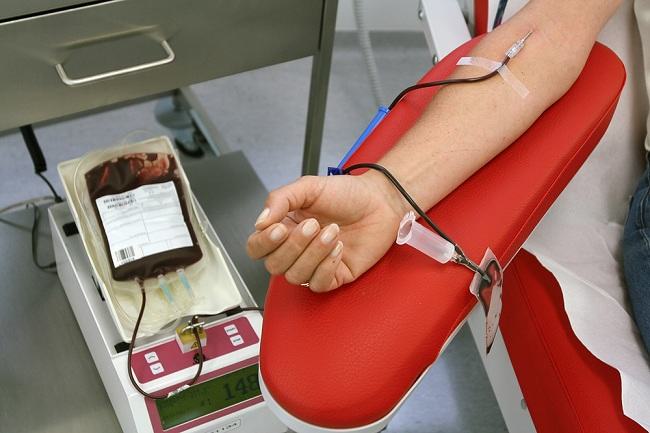Ivabradine is a medication to treat heart failure. This drug is also used to relieve chest pain or stable angina chronic disease in patients with coronary heart disease.
Ivabradine will help slow the heart rate by affecting the electrical activity in the heart. That way, the work of the heart in pumping blood will be lighter and the risk of aggravation of complaints in heart failure can be reduced.

This drug can be used by adults with heart failure or children over the age of 6 months. This drug should not be used carelessly and according to a doctor's prescription.
Ivabradine Trademarks: Coralan, Farcor 5, Farcor 7.5
What is Ivabradine
| group | Prescription drugs |
| Category | heart medicine |
| Benefit | Treat heart failure or relieve stable angina in patients with coronary heart disease. |
| Consumed by | Adults and children 6 years old |
| Ivabradine for pregnant and lactating women | Category N: Not yet categorized. However, this drug should not be used by pregnant women. Use effective contraception while taking ivabradine. It is not known whether it is absorbed into breast milk or not. Breastfeeding mothers should not take this medicine. |
| Drug form | Tablet |
Precautions Before Taking Ivabradine
Ivabradine is available in tablet form and its use must be based on a doctor's prescription. There are several things to consider before taking this drug, including:
- Do not take ivabradine if you are allergic to this drug. Always tell your doctor about any allergies you have.
- Tell your doctor if you have or have had liver disease, hypotension, kidney disease, retinal disease, heart rhythm disturbances, including a slow, irregular heartbeat, or have sick sinus syndrome.
- Tell your doctor if you are using a pacemaker or pacemaker.
- Tell your doctor if you are pregnant, breastfeeding, or planning a pregnancy. Use effective contraception during treatment with ivabradine.
- Check with your doctor regularly while you are on treatment with ivabradine.
- Tell your doctor if you are taking certain medications, supplements, or herbal products.
- Do not drive or do activities that require alertness after taking ivabradine, as this medicine can cause dizziness and visual disturbances, including blurred vision.
- See your doctor right away if you have an allergic reaction to the drug, a more serious side effect, or an overdose after taking ivabradine.
Dosage and Instructions for Use of Ivabradine
The dose of ivabradine for each patient may vary, depending on the condition being treated and the patient's response to treatment. In children, the dose of ivabradine will be determined by the doctor based on the patient's weight.
The following are general doses of ivabradine based on the condition you wish to treat:
Condition: Heart failure
- Mature: The initial dose is 5 mg, taken 2 times a day. After 2 weeks, the dose can be increased or decreased depending on the patient's heart rate. The maximum dose is 7.5 mg, 2 times a day.
- seniors: The initial dose is 2.5 mg, taken 2 times a day, the dose may be increased or decreased depending on the patient's response to treatment.
- Children 6 years of age weighing >40 kg: The initial dose is 2.5 mg, taken 2 times a day, the dose may be increased or decreased, depending on the patient's response to treatment.
Condition: Stable angina pectoris
- Mature: The initial dose does not exceed 5 mg, taken 2 times a day. The dose may be increased to 7.5 mg, 2 times daily, after 3–4 weeks, depending on the patient's response to the drug. Reduce dose to 2.5 mg, 2 times daily, if patient has bradycardia.
- Seniors aged 75 years: 2.5 mg, taken 2 times a day, the dose may be increased or decreased depending on the patient's response to the drug.
How to Take Ivabradine Correctly
Follow the doctor's advice and read the instructions on the medicine package before taking ivabradine. Do not reduce or increase the dose without consulting your doctor.
Take ivabradine with meals. Avoid consuming grapefruit while taking ivabradine, as it may increase the risk of side effects. Tell your doctor if you have difficulty swallowing.
It is recommended to take ivabradine regularly at the same time every day, i.e. in the morning and evening, in order to maximize the effect of treatment.
If you forget to take ivabradine, wait until the next scheduled consumption. Do not double the dose to make up for a missed dose.
Continue to take treatment as recommended by the doctor, even though the condition has improved. Do not stop taking the drug, except on doctor's instructions.
Perform regular health checks to the doctor while undergoing treatment with ivabradine. Health checks, such as heart checks and EKG, need to be done regularly to monitor the progress of the condition and the effectiveness of the drug.
Store ivabradine tablets in a closed container at a cool temperature. Protect this medication from exposure to direct sunlight. Keep this medicine out of reach of children.
Interactions of Ivabradine with Other Drugs
The use of ivabradine together with other drugs can cause drug interactions, including:
- Increased risk of fatal side effects with ketoconazole, fluconazole, itraconazole, azithromycin, clarithromycin, erythromycin, ritonavir, darunavir, verapamil, diltiazem, or nefazodone
- Increased risk of QT prolongation due to decreased heart rate when used with quinidine, pimozide, disopyramide, or ziprasidone
- Decreased effectiveness of ivabradine when used with rifampicin, phenytoin, or barbiturates
In addition, a decrease in the effectiveness of ivabradine may occur if this medicine is taken with herbal medicines St. John's wort.
Ivabradine Side Effects and Dangers
Some of the side effects that may appear after taking ivabradine are dizziness, unusual tiredness, visual disturbances such as seeing a halo image. Check with your doctor if the side effects above don't go away or get worse.
Immediately see a doctor if you have an allergic reaction to the drug or a more serious side effect, such as:
- Heart rate is very slow, in children these symptoms are usually accompanied by difficulty eating, shortness of breath, skin looks bluish
- Chest pain that is getting worse, chest feels pressured
- Dizziness so heavy that you faint
- Incredibly tired
- Headache or blurred vision
- Heart palpitations or fast heartbeat









